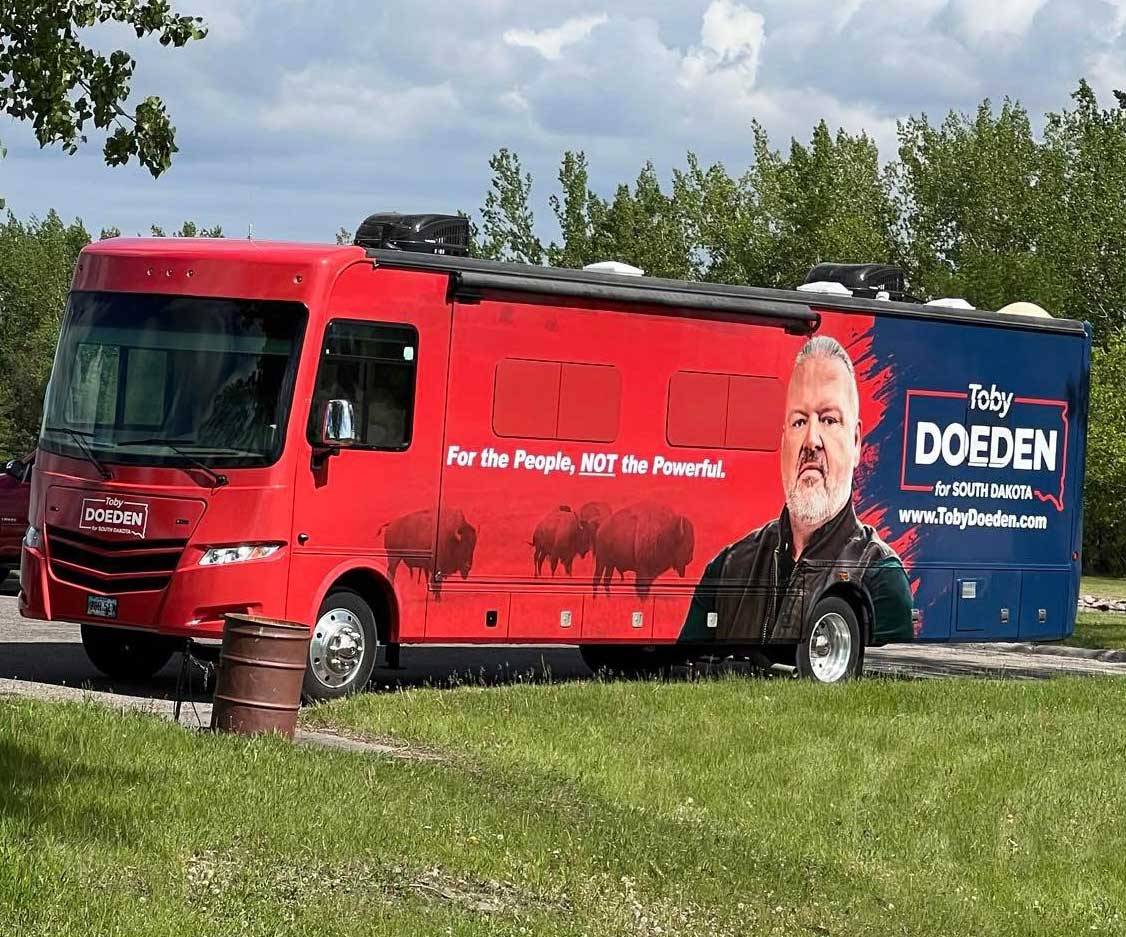Governor Larry Rhoden’s Weekly Column: Peace & Prosperity
Peace & Prosperity
By: Gov. Larry Rhoden
June 13, 2025
There’s a beat-up old book sitting on my desk at the State Capitol. It’s full of pictures that were taken by my dad. Long after he passed, we found an old camera hidden amongst his old possessions. We got the film developed, and lo and behold – the photos were all from his service in World War II. They started with his service in the Battle of the Bulge and continue through the end of the war in Europe.
My dad helped liberate the notorious Mauthausen Concentration Camp, and the book includes those photos as well. The pictures are difficult to look at because of the horrific things that were done there, and my dad didn’t talk about it much.
I recently went on a trade mission to Israel, and I joined a wreath-laying ceremony at Yad Vashem, the World Holocaust Remembrance Center. While I was there, they showed me portions of the memorial specific to the Mauthausen Concentration Camp. By remembering and honoring the dead, we can ensure that atrocities like the Holocaust never happen again. And we can work together to build a more peaceful and more prosperous world.
I don’t use the word “awesome” very much. Americans use it far too often and far too frivolously. It’s supposed to mean “inspiring awe or admiration,” but to most Americans, it just means “yeah, that’s pretty good.” But let me tell you, Israel is truly an awesome place. The history is awesome, that of both God and of man. Beyond that, the nation of Israel is taking incredible actions to maintain the peace and prosperity of their people.
Israel is a nation beset by enemies on all sides. In just these last few days, conflict has broken out between them and Iran as Israel moves to defend themselves, and we are praying for the safety of their people. Yet theirs is a land where freedom rules, where anyone can be who they set out to be. Jews, Muslims, and Christians live side by side and have all the same opportunities.
Israel even has the highest birth rate in the developed world – kind of like South Dakota has the highest birth rate in America! With freedom comes happiness and the hope of building a better life.
While I was in Israel, I met with key leaders like President Isaac Herzog, Speaker of the Knesset Amir Ohana, and Foreign Minister Gideon Sa’ar. Those meetings were an important part of strengthening our relationship and working together for our mutual peace and prosperity. By working together with Israel, one of our greatest allies, we will keep South Dakota Open for Opportunity for generations to come.
I also spent an evening with the U.S. Ambassador to Israel, Mike Huckabee. He hosted our trade delegation for a reception at this house. Ambassador Huckabee used to be Governor of Arkansas, so he understands what it means to advance opportunities for his home state. Ambassador Huckabee has stood for freedom his entire career and appreciates what a strong Israel means for America’s own peace and prosperity. I was grateful for his kindness and counsel.
Our time was very well spent to support South Dakota’s economy! Our trade delegation was made up of South Dakota defense and agriculture businesses that are actively seeking sales in the Israeli market, and previous such missions have paid tremendous dividends. As President & CEO of South Dakota Trade Jesse Fonkert said, “Businesses are generating real opportunities that have already produced millions in sales and a robust pipeline for even more expansion.”
That’s how we continue expanding peace and prosperity – by working together, strengthening relationships, honoring the past, and looking to the future with hope for all the opportunities in front of us.
###





